Premium Only Content

copyright as censorship
Copyright as Censorship: Information Control in the Digital Age
Introduction
Copyright, in theory, is designed to protect the rights of creators. But in practice, particularly in the digital age, it often functions less like a shield for artists and more like a weapon of control wielded by corporations and institutions to limit public access to knowledge and culture. When copyright is enforced to extremes, it acts not as a protector of creativity but as a tool of censorship. Books, articles, educational content, and even audiobooks are deleted, hidden, or paywalled, shaping the internet not into the universal library it could be, but into a tightly controlled shopping mall. This creates a class divide in access to knowledge and education and undermines the ideals of the internet as a space for learning, sharing, and human progress.
This essay examines how copyright enforcement, especially by powerful entities like Disney or the Church of Scientology, suppresses access to information. It looks at how YouTube audiobooks are silenced, how academic knowledge is locked behind institutional walls, and how Aaron Swartz paid the ultimate price trying to free it. It argues that what the law calls "piracy" is often simply an act of sharing, and that our current copyright system is fundamentally incompatible with the nature of digital technology. Ultimately, it asks: Who owns human knowledge, and who gets to decide who has access to it?
The Internet as a Library—Or a Mall
The internet was originally seen as a digital commons. Tim Berners-Lee envisioned the web as a place to share knowledge, where information could be freely exchanged and built upon. In the 1990s and early 2000s, this vision was still alive: libraries posted digitized books, forums archived rare documents, and communities built encyclopedias like Wikipedia. Computers, by their nature, are copying machines. Every digital action is a copy—opening a file, loading a page, streaming a video.
But the legal framework surrounding copyright is built for scarcity, not abundance. It was crafted in an analog era, where duplicating a book or a film required physical effort and expense. In the digital world, copying is effortless and instantaneous. This creates a fundamental tension: computers want to share; copyright wants to restrict. So instead of evolving the law to match the technology, we criminalized the natural behavior of the machine.
The result is a slow transformation of the web from a library to a mall. Instead of reading a book, you rent it. Instead of sharing a film, you buy a license to stream it. Instead of accessing research, you’re told to pay $49.99 for a PDF. Copyright enforcers claim they’re protecting artists, but often they’re protecting monopolies.
Digital Book Burning: When Copyright Deletes Culture
Strict copyright enforcement doesn’t just restrict access—it erases content. YouTube channels that post full-length audiobooks, even of older or public domain works, are routinely taken down. Archive.org, a digital library that offers access to millions of books, movies, and academic papers, has faced lawsuits attempting to shut it down for lending books the same way physical libraries do. When content is removed from the internet, it often vanishes completely. In this way, copyright can function like digital book burning.
The metaphor isn’t a stretch. While not driven by ideology like historical book burnings, the effect is similar: information becomes inaccessible, especially to those who can’t afford it otherwise. This is particularly evident in education. Entire fields of study are locked behind academic journals and textbook paywalls. A biology textbook can cost $300. JSTOR charges exorbitant fees for access to articles, many of which were written by scholars funded by public money.
This information exists. It's already been created. But copyright law prevents it from being shared, even when sharing would cause no harm to the original. If anything, it would help humanity.
Aaron Swartz: Martyr for the Free Knowledge Movement
Aaron Swartz understood this contradiction. A brilliant programmer and activist, he believed knowledge should be free and accessible to all. In 2010, he used MIT’s network to download millions of academic journal articles from JSTOR with the intention of making them publicly available. He didn't profit from it. He simply believed the public should have access to research it had often paid for through taxes.
For this, the U.S. government charged him with multiple felonies under the Computer Fraud and Abuse Act. Facing decades in prison and financial ruin, Swartz took his own life in 2013. His death became a rallying cry for the open access movement. But nearly a decade later, the core issue remains unresolved: academic knowledge is still locked away, and those who attempt to free it still face legal threats.
Swartz's story highlights the moral failure of our copyright regime. Instead of rewarding those who expand access to knowledge, it punishes them. Instead of promoting education, it criminalizes it.
YouTube, Audiobooks, and the Silencing of Knowledge
YouTube could be the greatest library of audiobooks ever assembled. It has the infrastructure. It has the audience. It has creators willing to read and share books. But copyright strikes prevent this from happening. Entire channels have been demonetized or deleted for uploading public readings of books—even when those books are in the public domain.
Why? Because the copyright system doesn’t just protect the work—it protects the corporation’s control of the distribution. Even if a book was written 100 years ago, the audiobook rights might belong to a publisher. And even if no one is harmed by the sharing, the platform will still take the content down to avoid legal liability. This enforcement doesn’t serve the author, who may be long dead. It serves the middleman.
The result is a sterile, controlled environment where only those with money can access knowledge. If you can’t afford Audible, tough luck. If you can’t afford to buy the eBook, there’s no legal way to hear it. The internet, which could democratize education, becomes another wall.
Copyright as Class Warfare
Copyright doesn’t affect everyone equally. If you’re wealthy, you can afford textbooks, subscriptions, and legal copies of any material you want. If you’re poor or live in a developing country, your access is limited. This creates a knowledge gap that reinforces inequality. It’s a digital version of the class divide: information becomes a luxury good.
This elitism is especially dangerous in an age where education is key to opportunity. When only the rich can afford knowledge, only the rich can participate fully in society. Poor students must rely on piracy just to keep up. They share PDFs, torrent textbooks, and look for bootleg audiobooks on YouTube—not out of malice, but out of necessity.
And yet the law treats them as criminals. The term “pirate” evokes theft, greed, and violence. But in many cases, so-called piracy is just the act of copying something so that someone else can learn. No one loses a book when it’s copied digitally. There’s no scarcity. The harm is imagined; the benefit is real.
The Legal System vs. The Nature of Computers
At the heart of the issue is a fundamental incompatibility: computers are built to copy. The internet is a giant peer-to-peer network. Sharing isn’t the exception; it’s the rule. Copyright law, on the other hand, is built on control. It assumes a gatekeeper who can grant or deny access. But in a world of unlimited digital reproduction, that model breaks.
Rather than adapt to the new reality, the law has doubled down. Anti-piracy laws like the DMCA and SOPA have tried to force computers into a mold they don’t fit. Enforcement is often automated, sweeping up innocent content in its dragnet. Legitimate fair use, criticism, parody, or education are often caught in the same net.
And who benefits? Mostly corporations. Disney, for example, has lobbied aggressively to extend copyright durations so that its intellectual property never enters the public domain. The Church of Scientology has sued people simply for posting excerpts of its texts online. These aren’t protections for creators; they’re protections for institutions that want to control narratives.
Reimagining Knowledge as a Public Good
The current system is broken. But the alternative isn’t chaos. It’s cooperation. It’s understanding that knowledge, culture, and education are not finite resources to be hoarded. They’re public goods that grow when shared.
We need new laws that reflect the reality of the digital age. Shorter copyright durations. Stronger fair use protections. Legal support for digital libraries and open access repositories. Funding for public education platforms. Protections for those who share knowledge, not just for those who lock it away.
The Creative Commons model is a step in the right direction, allowing creators to choose how their work is used and shared. Open access publishing is growing, albeit slowly. But we need systemic change. We need to ask whether we value profit more than progress, control more than creativity, and ownership more than opportunity.
Conclusion: Whose Knowledge Is It, Anyway?
Copyright has a place. Creators deserve recognition and compensation. But when the system is used to erase, censor, and restrict access to knowledge, it ceases to be ethical. It becomes a tool of control.
The internet could be the greatest library in human history. Instead, it’s becoming a series of locked doors. The people who hold the keys aren’t authors or educators—they’re corporations and lawyers. Meanwhile, students, researchers, and everyday people are punished for trying to learn.
Aaron Swartz died because he believed knowledge should belong to everyone. The least we can do is keep asking the question he asked with his actions: Who owns knowledge? And why should they?
We must stop equating sharing with stealing. We must recognize that in a digital world, copying is not theft—it is communication. And the right to learn should never be treated as a crime.
-
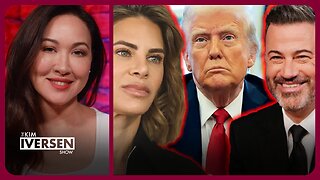 DVR
DVR
Kim Iversen
3 hours agoFrom Jillian Michaels to Jimmy Kimmel — Give Me A Tylenol, The World’s Gone Crazy
22.8K29 -
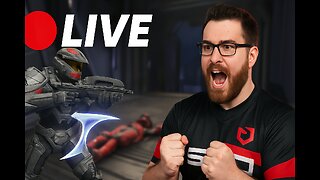 LIVE
LIVE
Spartan
2 hours agoScrims and then ranked and/or Silent Hill F
18 watching -
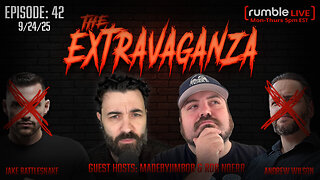 1:07:43
1:07:43
TheCrucible
2 hours agoThe Extravaganza! EP: 42 (9/24/25)
55.4K3 -
 LIVE
LIVE
Bannons War Room
7 months agoWarRoom Live
10,956 watching -
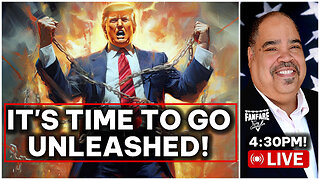 LIVE
LIVE
Barry Cunningham
3 hours agoANOTHER ICE ATTACK! PRESIDENT TRUMP NEEDS GO FULLY UNLEASHED!
1,613 watching -
 DVR
DVR
StoneMountain64
5 hours agoCoD NEXT Black Ops 7 prep getting my movement back
48.9K -
 LIVE
LIVE
ZWOGs
7 hours ago🔴LIVE IN 1440p! - PLAYSTATION STATE OF PLAY 2025, Jump Space w/ Pudge, SBL, & Grimm, Resident Evil 2 , & More! - Come Hang Out!
22 watching -
 9:11
9:11
ARFCOM News
2 hours agoMag Bans BANNED | Arrested For Home Carry | Federal Hypocrisy
3.79K -
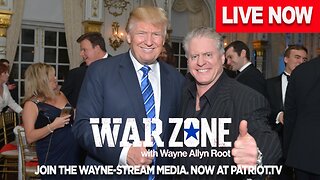 LIVE
LIVE
Wayne Allyn Root | WAR Zone
4 hours agoWatch LIVE: The War Zone Podcast with Wayne Allyn Root
64 watching -
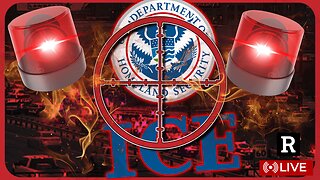 1:34:21
1:34:21
Redacted News
3 hours agoHIGH ALERT! LEFTIST ATTACKS ICE FACILITY 3 DEAD, CHRISTIANS BURNED IN SYRIA, OSTRICH FARM SAVED?
180K98